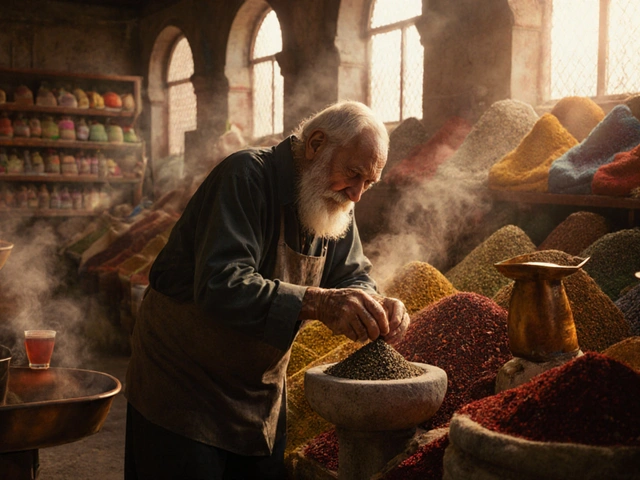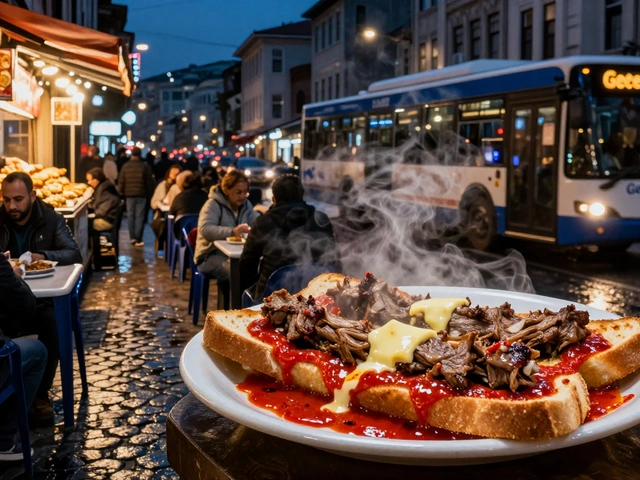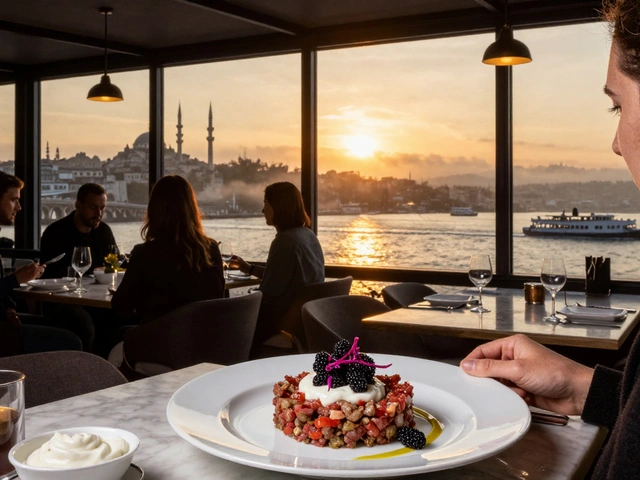Top 5 Souvenirs to Bring Home from Istanbul’s Grand Bazaar
Discover Istanbul's top 5 Grand Bazaar souvenirs with local tips, price ranges, authenticity checks, and shipping advice for residents and visitors alike.
When exploring Istanbul souvenirs, a collection of items that capture the spirit, art, and flavors of Turkey for travelers to bring home. Also known as Turkish souvenirs, they let you relive the city’s buzz long after you leave.
The first stop for most shoppers is Grand Bazaar, one of the world’s oldest and largest covered markets, with over 4,000 shops tucked into a maze of stone corridors. Here you can find everything from hand‑painted tiles to aromatic spices. The bazaar’s layout encourages wandering, which means you’ll stumble across hidden stalls selling authentic leather wallets or vintage postcards. Remember, a good bargain usually starts with a friendly “Kaç para?” – it’s part of the experience, not a negotiation tactic you must avoid.
If you love bright colors, Turkish ceramics, hand‑crafted tiles, plates, and bowls featuring Ottoman motifs and İznik blue patterns are a must‑grab. Look for the signature “hand‑painted” label and compare glaze consistency; a glossy finish that feels even all over usually means it’s made locally. Many artisans still fire pieces in small wood‑fired kilns, which adds a unique texture you won’t see in mass‑produced imports. A practical tip: buy a set that nests neatly, so it fits in a suitcase without cracking.
For a bigger investment, consider Turkish carpets, hand‑woven rugs that showcase regional designs such as Kilim, Hereke, and Oushak. The weave density (knots per square meter) directly reflects quality; a higher knot count means a more durable and detailed pattern. Authentic pieces often carry a small woven label with the weaver’s town. If you’re unsure, ask the seller to show you the backing – natural wool should feel soft, while synthetic backing feels plasticky. Even a small runner can become a conversation starter back home.
Beyond the historic bazaars, modern local markets, such as the Spice Bazaar, Kadıköy market, and Çukurcuma antique lanes offer fresh takes on souvenir shopping. Here you’ll find specialty foods like lokum (Turkish delight), saffron‑infused tea, and dried figs packaged in resealable bags. Many stalls also sell handmade soap made from olive oil and rosewater – a fragrant reminder of a Turkish bath. Because these markets serve locals daily, prices tend be lower and the bargaining culture more relaxed.
Authenticity isn’t just about a label; it’s about the story behind each piece. Ask sellers where the item was made, who the craftsman is, and whether the material is sourced locally. A quick online check can confirm if a “hand‑made” claim aligns with regional traditions. Shipping can be tricky for fragile items, so pack ceramics and carpets in bubble wrap and use sturdy boxes. If you’re short on luggage space, many vendors offer free or low‑cost delivery to your hotel or airport.
In short, Istanbul souvenirs encompass cultural artifacts, culinary treats, and decorative pieces that let you relive the city’s vibe. Choosing the right souvenir requires knowing the market, understanding material quality, and being ready to haggle a bit. Whether you walk out of the Grand Bazaar with a painted tile or receive a carpet delivered to your doorstep, each item connects you to Istanbul’s centuries‑old craft heritage.
Below you’ll find a curated list of articles that dive deeper into specific neighborhoods, shopping strategies, and the best spots to pick up authentic keepsakes. Use them as a roadmap to make your souvenir hunt both fun and rewarding.
Discover Istanbul's top 5 Grand Bazaar souvenirs with local tips, price ranges, authenticity checks, and shipping advice for residents and visitors alike.

Discover the most popular U.S. museums that resonate with Istanbulites - from The Met’s Islamic art to the Smithsonian’s hidden cultural links. Perfect for travelers seeking deeper connections beyond Turkey’s borders.

Discover the real stories behind Istanbul’s Spice Market, where generations of vendors keep alive the scents and traditions that flavor the city’s kitchens. Learn how to buy like a local and what spices truly define Istanbul’s culinary soul.

Discover the best rooftop bars in Istanbul for celebrating special occasions, from sunset cocktails with Bosphorus views to hidden gems with Turkish-inspired drinks and intimate atmospheres.

Discover where to eat after midnight in Istanbul, from 24-hour kebabs and street mussels to quiet tea houses and warm rice pudding. This is the city’s real nightlife-flavor, culture, and no sleep.

Discover Istanbul’s most unique dining experiences-from a 1,500-year-old cistern to a family-run canteen serving forgotten Ottoman dishes. These aren’t just restaurants; they’re living traditions.